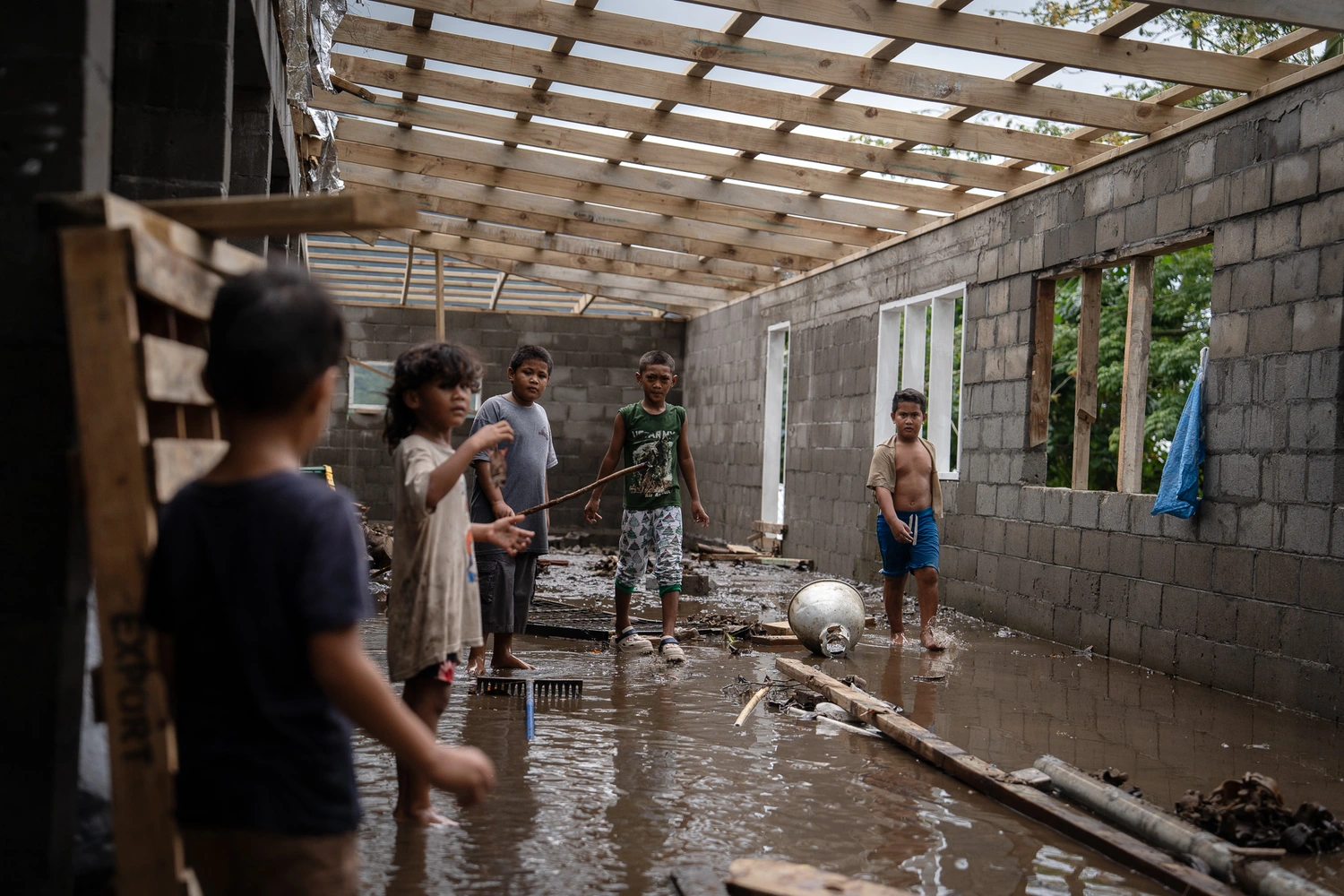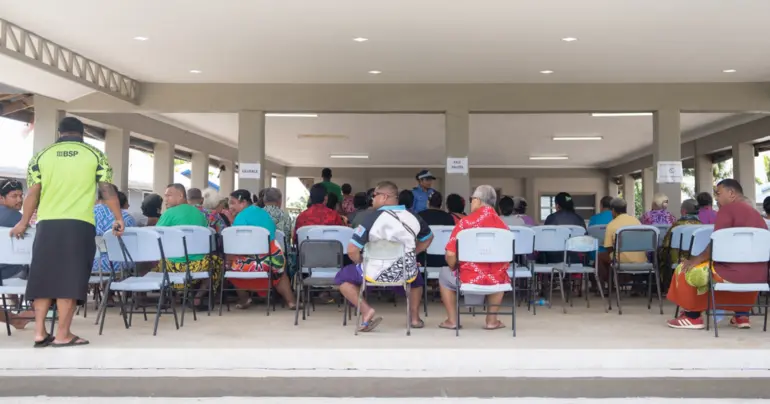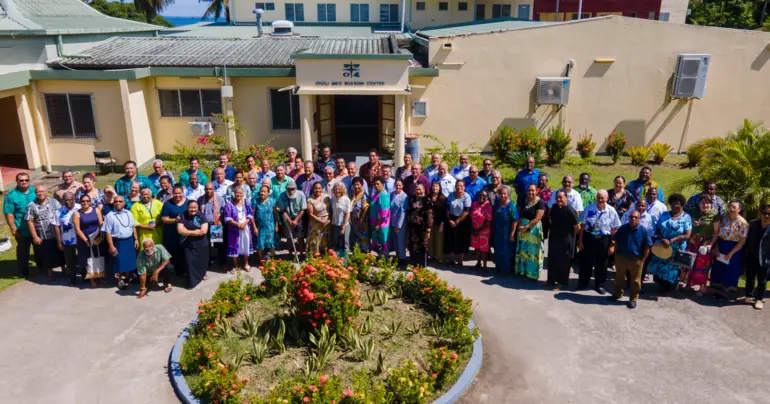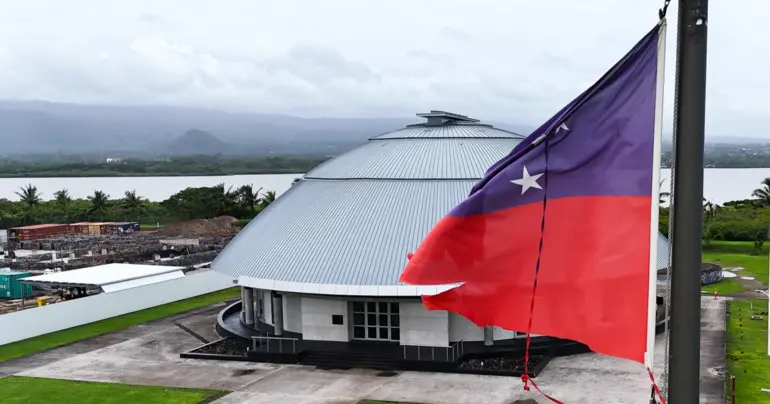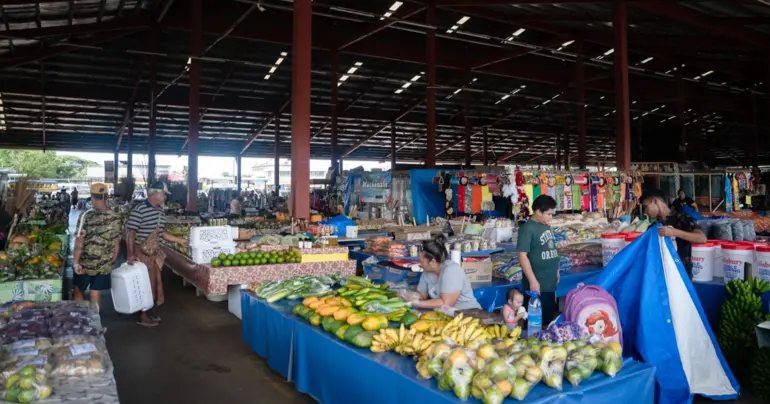As we prepare for COP30, we remain hopeful that together we can all make a difference
Next week, Pacific Leaders, climate change negotiators, government officials and relevant stakeholders will leave home to attend the latest round of global climate change negotiations.
Thirty-three years after the Brazilian Earth Summit set the climate change negotiations train in motion with a new blueprint for international action on environmental and development issues, officials are returning to Brazil this year for the thirtieth Conference of the Parties to the UN Framework Convention on Climate Change (UNFCCC COP30) in Belem.
COP30 takes place at a critical time when there are so many competing global issues. 2025 also marks a decade of the Paris Agreement, which exists to combat climate change by limiting global warming to well below 2 degrees Celsius, preferably to 1.5 degrees, compared to pre-industrial levels.
The signs and the daily lived reality we see in the Pacific are alarming, but we cannot give up – achieving a 1.5 world is still attainable but we must act fast. We must continue to do the best we can for course correction and to ensure a resilient Pacific environment for our generations of today and tomorrow.
The Intergovernmental Panel on Climate Change (IPCC) has warned there is more than 50% chance that the global temperature rise will reach or surpass 1.5 degrees C between 2021 and 2040 across studied scenarios, and under a high-emissions pathway, specifically, the world may hit this threshold even sooner — between 2018 and 2037.
2024 was the warmest year on record in the South-West Pacific with record-breaking temperatures in Australia, Papua New Guinea, Solomon Islands, Vanuatu and Fiji posing severe risks to health and ecosystems. Sea-surface temperatures reached record highs and Ocean acidification continued across the region, further stressing coral reefs and biodiversity.
The IPCC assessment reports are clear - urgent emission reductions must be made to limit global warming to the Paris Agreements 1.5˚C temperature limit or there will be catastrophic consequences for sea-level rise, coastal erosion, water insecurity, saltwater intrusion, increased droughts and biodiversity loss.
Against this backdrop, the Secretariat of the Pacific Regional Environment Programme (SPREP), with a mandate as coordinator of Pacific climate change action and lead on enhancing Pacific engagement in international climate change negotiations, has been working with our partners to prepare our Pacific officials for the difficult task of climate change negotiations in Belem to bring everyone together and keep on track for a 1.5 world.
When we wrapped up the Pacific pre-COP30 meeting in Samoa, the message to the world from our officials was quite clear. Drawing on a previous COP negotiations tagline, which called on the world to save Tuvalu, the message was ‘save the Pacific, save the world.’
If big countries that are the big emitters do not care to save the Pacific now, the impacts our communities are experiencing in relation to the climate crisis will inevitably be at their front door.
For Pacific countries, their attendance at COP meetings is never easy. The Road to Belem has been particularly challenging with many countries expressing concerns about the soaring cost of accommodation as well as other logistical challenges.
There are also continuous questions about why Pacific countries need to be present at these COP negotiations, especially when the outcomes often fall below our expectations.
The multilateralism process is imperfect, and the concerns are valid. But it is the only process we have, and giving up is not an option. In the words of Mr Xavier Matsutaro, National Climate Change Coordinator, the Government of Palau: “You don’t show up, you don’t have a voice, that’s what it basically comes down to.” It is the opportunity that the Pacific has to stand toe to toe with the rest of the world.
The former UN secretary general, Tupua Ban Ki-moon, noted, attendance is not ceremonial but a test of leadership. He warned that the world was watching – and said that history would remember who showed up.
The Agreement under the United Nations Convention on the Law of the Sea on the Conservation and Sustainable Use of Marine Biological Diversity of Areas Beyond National Jurisdiction (BBNJ) reached a global milestone with 60 ratifications paving the way towards entry into force by January 2026. This agreement is a symbolic lighthouse guiding the way for our Pacific islands voyage and is an example of successful multilateralism, providing key stepping stones to save humanity.
It brings hope to this space. In Samoa, during our Pacific preparatory meeting, we all reflected upon our personal calling to engage in the negotiations. As a Niuean, climate change impacts are our ‘lived reality.’ In 2004, Niue was devastated by Cyclone Heta, a category 5 cyclone with winds of up to 300 kilometres per hour. But it’s not just extreme weather events we need to think about. Climate change is already taking a toll on Niue’s marine life, which we depend upon to sustain our villages, communities and the economy.
Niue’s story is common for all Pacific countries. In 2023, Vanuatu was struck by three tropical cyclones in the space of three months. Category four twin cyclones Kevin and Judy made landfall within days of each other, followed by category five Cyclone Lola in October, which arrived earlier than anticipated outside of the cyclone season.
Science tells us that worsening climate change means these cyclones will become more frequent. We live on the frontlines and witness the impacts of worsening climate change firsthand.
This is why our work with Pacific countries, donors and partners is important. Centred on keeping 1.5 alive for our survival, COP30 in Belem is yet another opportunity for the world to come together to make a difference.
As we prepare for Belem, let us be reminded of the Pacific’s leadership in the development of the Paris Agreement, as well as other positive steps that have since been taken to ensure our one Pacific voice is amplified for our survival. The ongoing work on the implementation of the Fund for Loss and Damage, as well as the recent International Court of Justice (ICJ) landmark advisory opinion stating that all states have a legal obligation under international law to protect the climate from the adverse effects of greenhouse gas emissions, are just some of these positive steps.
What can we expect in Belem? Billed as an implementation COP, Belem will be a critical moment for climate action, a test of whether ambition translates into real-world policies, investments, and partnerships to protect our communities. Every word to be negotiated matters.
While we acknowledge the challenges in the multilateral process, we remain steadfast in our commitment to engage for meaningful outcomes. This work is for our countries, our people, this is about our survival, we cannot give up!
Tagaloa Cooper is Director of Climate Change Resilience at the Secretariat of the Pacific Regional Environment Programme (SPREP).




